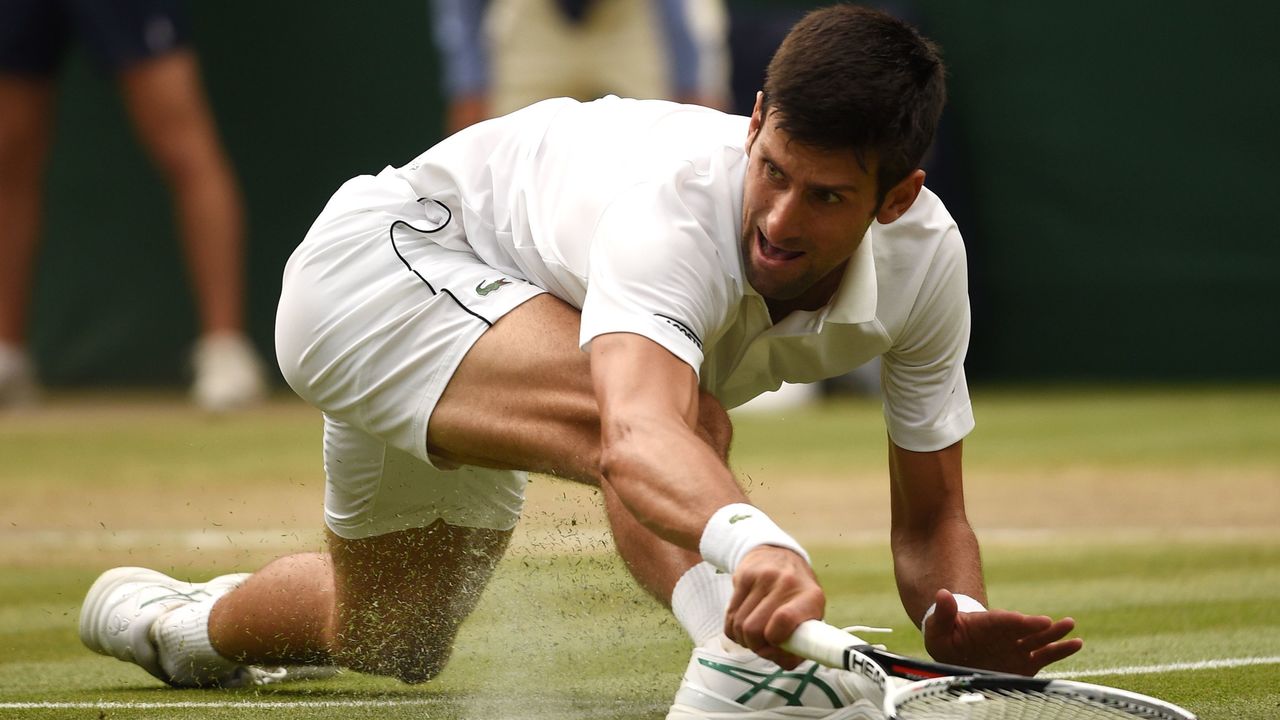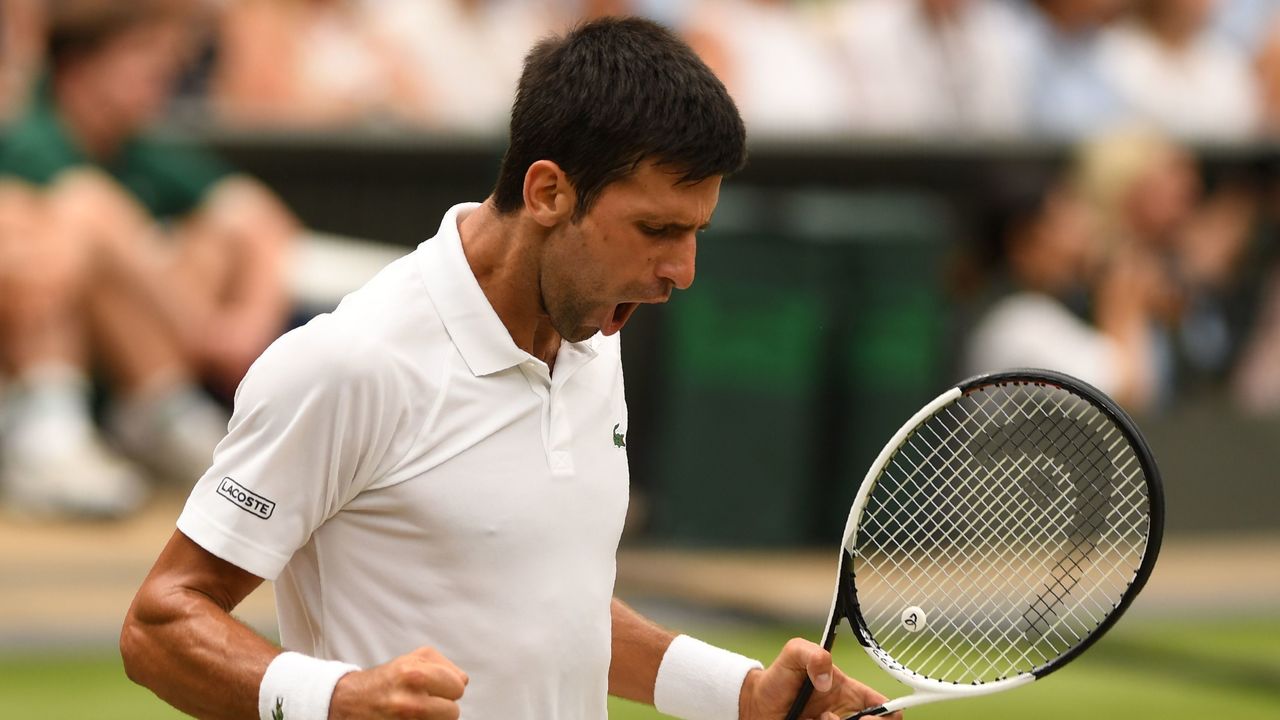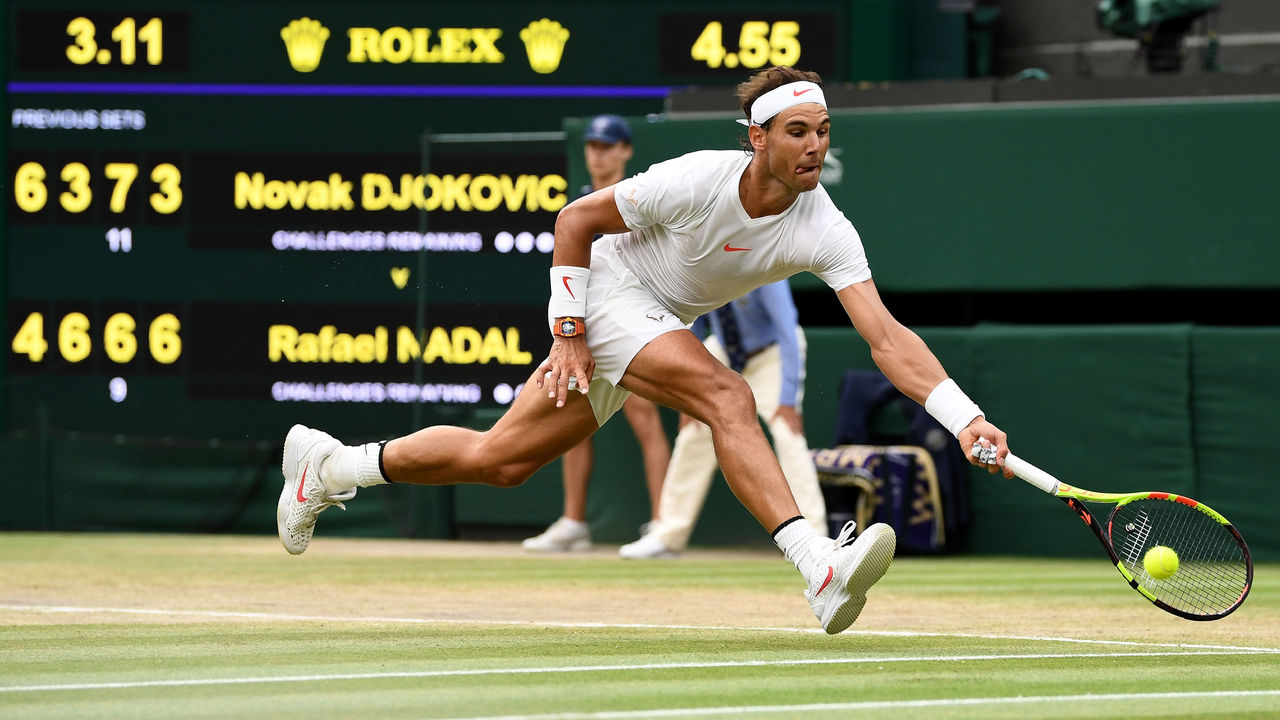Peak Djokovic returns just in time to rekindle legendary rivalry with Nadal
There's an indelible scene that Andre Agassi describes in his autobiography, Open, in which a 36-year-old Agassi, after winning what would prove to be the penultimate match of his pro tennis career - a grueling five-setter over Marcos Baghdatis in the second round of the 2006 US Open - lies wounded on a table beside Baghdatis in the training room.
Agassi's back is seizing up on him so badly he can't breathe, while Bagdhatis is shrieking in agony as the muscles in his legs contract all at once. Still laying there after receiving treatment from the trainers, they notice that highlights from their match are being shown on the television in the top corner of the room, and that those highlights are quite extraordinary. Baghdatis looks from Agassi to the screen and back, then reaches out a hand and nods his head in the direction of the television, as if to say, We did that.
It's hard not to think about that scene when you watch Novak Djokovic and Rafael Nadal play each other. It's hard not to wonder whether they've ever shared a moment like that, whether they ever speak about what they've done together, marvel at what they've put each other through, look each other in the eye and think, We did that.
On Friday, and then Saturday, Djokovic and Nadal played their 52nd head-to-head match in the Wimbledon semifinals. Peppered throughout their previous 51 meetings were some of the most intense, most furiously contested, most visually arresting, most physically and spatially incomprehensible matches the sport has ever seen. And somehow, though it was taking place 12 years after their first meeting, and few of their recent bouts had produced much in the way of drama, and Djokovic hadn't played anything resembling his best tennis in two years, and Nadal had been a non-factor on grass for a good half-decade, No. 52 was the best of the bunch.
There was no question about whether Nadal would hold up his end of the bargain; he's been the best player on tour this season, and had lost just one completed match in 2018 coming in. The quality of the semifinal seemed to rest in Djokovic's hands. And, from the opening ball on Friday evening to Nadal's match-ending forehand error on Saturday afternoon, Djokovic squeezed with a white-knuckled fist. With every measured backhand down the line, every sliding split-legged retrieval, every serve spotted on a dime, and every prescient return, Djokovic's previous 20-odd months of injury-marred play, self-doubt, psychologically damaging defeats, and existential angst seemed to fade just a little further from the collective tennis memory, and his own. Surely, this couldn't be the same player who'd gotten waxed by Hyeon Chung in Melbourne; who'd listlessly bowed out in the first round of Indian Wells, Miami, and Barcelona to Taro Daniel, Benoit Paire, and Martin Klizan; who'd been outfoxed by Marco Cecchinato at Roland Garros.

The two had taken to Centre Court with a sense of urgency Friday, under a closed roof and a time constraint, the threat of Wimbledon's curfew looming after they'd had to wait out the six-and-a-half-hour semi between Kevin Anderson and John Isner that went to 26-24 in the fifth set. That urgency bled into their tennis, which was fast and frenetic and aggressive. Like most Djokovic-Nadal matches, even the garden-variety editions, it looked and flowed differently than other matches, with points criss-crossing every patch of court, the ball changing direction and pace freely and unpredictably, swathes of grass opening and closing in a blink as both men shrunk the court with their speed and anticipation. There was rarely any sense of who would win a given point until the ball bounced a second time.
The curfew went into effect and interrupted the proceedings right after Djokovic won a spellbinding third-set tiebreaker to take a two-sets-to-one lead, so the two left the court for the night, returned 14 hours later, and picked up right where they'd left off. If there were any concerns about a loss of momentum, or a dip in quality or intensity, a see-sawing six-deuce game to open the fourth set quickly laid them to rest. If anything, the quality of tennis improved on Saturday.
After Nadal took the fourth set, the two exchanged holds for 17 games in a slug-it-out fifth. Nadal, perhaps recognizing where he'd failed on grass courts in the recent past, pressed the issue, playing well inside the baseline, taking the ball early, lashing short-hop forehands down the line, busting out ballsy drop shots, showcasing a backhand that seems to improve every week, and carrying over the approach-heavy tactic that had helped deliver him a five-set victory over Juan Martin del Potro in the quarters. Djokovic was a bit more restrained, and struggled mightily to convert break points, but also bailed himself out of trouble with some of the most clutch serving of his career.

Djokovic saved two break points with service winners at 4-all. He saved three more at 7-all, the third of which came on a gasp-inducing cross-court passing shot from well behind the baseline. Nadal saved match point at 7-8 with an astounding drop shot that landed and died right on the sideline. At that point we'd entered a surreal, dazed phase of the match in which one-upsmanship seemed to be the only objective, in which the only options for the combatants were to keep elevating their games or die in the attempt. And then finally, in the 18th game of the set, after a total of five hours and 15 minutes on court across two days, Nadal slipped - literally - on a must-have point to go down 0-40, before sailing one last forehand to put an end to the insanity and send Djokovic to his first Slam final since 2016.
"It's hard to pick the words," Djokovic said afterward. "I'm just going through things, flashing back the last 15 months and everything I've been through to get here, to get to the finals and win against the best player in the world in one of the longest matches I've ever played over the two days. I'm just overwhelmed."
Djokovic finished with 73 winners, 42 unforced errors, and 195 total points won. Nadal finished with 73 winners, 42 unforced errors, and 191 total points won. Those stats somehow undersell how close it was.
"Basically until the last shot, I didn't know if I'm going to win," Djokovic said. "I believed it, but I knew that he was very, very close and he had some chances. These kinds of matches you live for, you work for."

Nadal could only accept the loss with a feeling of hard-won fatalism.
"I can say he deserved it, because he deserved it," Nadal said. "In my opinion, I deserved it too. Both of us deserved it. As I said the other day against Del Potro, anyone could win. Today I say the same. Other day was for me, today was for him.
"Normally I am very critical of myself. I hit great shots. I played aggressive. I missed balls, not too many, but I missed some. But when you play with that intensity, that level of risk, and that level of passion, sometimes you go over. But nothing to complain, I think I played a great match. I have not much more inside me. I gave it my best."
This is what Nadal and Djokovic have been doing to each other for virtually their entire careers; elevating each other while trying to destroy each other, bringing the best out of each other while taking everything out of each other. It was only fitting, and perhaps only possible, that Nadal was the one who finally coaxed Djokovic out of his years-long malaise.
"In my opinion he's top-level again," Nadal said after the match.
"I was very emotional after the match because it's been a long 15 months for me, trying to overcome different obstacles," Djokovic said. "There were moments of doubt, of frustration, disappointment, where you're questioning whether you want to keep it going in this way or that way, or where is that taking you ... But did I truly believe that I could get back on the level? Yes."
Whether or not Djokovic goes on to beat Anderson in Sunday's quick-turnaround final to capture his 13th Grand Slam, whether this turns out to be more of a blip that a sustainable return to form, these two will have yet more evidence of the heights to which they're capable of pushing each. They'll be able to look back at this match, perhaps more proudly than any other they've played, and think, We did that.